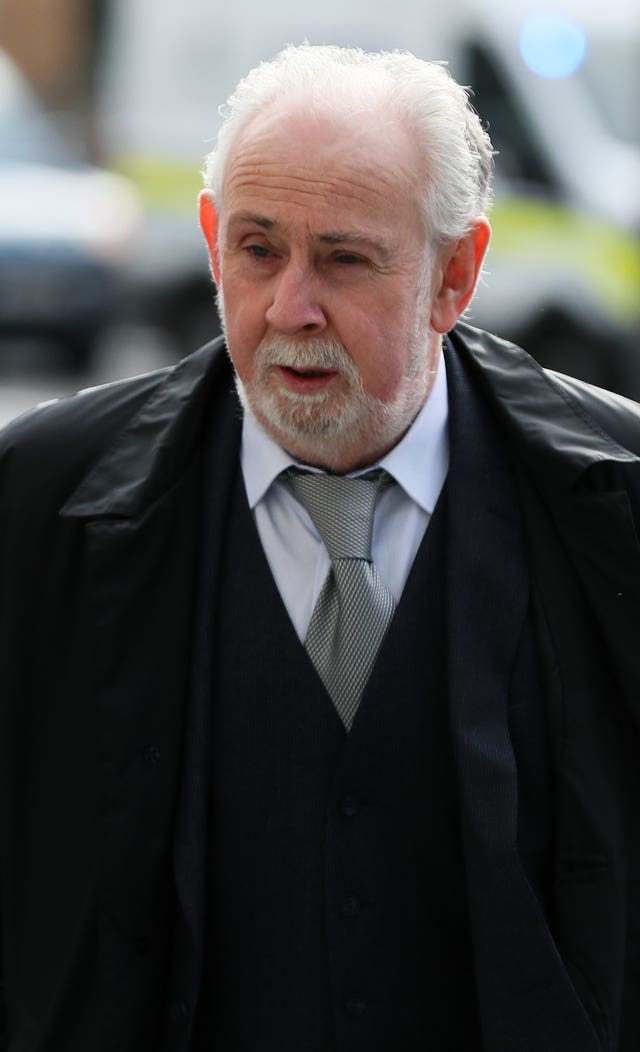John Downey has been granted leave to appeal against the decision to extradite him to Northern Ireland.
The 67-year-old, whose trial for the IRA’s Hyde Park bombing collapsed in controversy five years ago, is wanted by prosecutors in Northern Ireland over the murders of two Ulster Defence Regiment soldiers in 1972.
Downey was arrested at his home in Creeslough, Co Donegal, last October under a European arrest warrant after authorities in Northern Ireland determined they had sufficient evidence to charge him with the murders of Lance Corporal Alfred Johnston, 32, and Private James Eames, 33.

Ms Justice Aileen Donnelly said on Wednesday that she granted the appeal to test whether it is an abuse of process to return him to Northern Ireland.
In 2013, Downey was charged with murdering four Royal Household Cavalrymen in a bomb in London’s Hyde Park in 1982.
He was tried at the Old Bailey in 2014 but the case dramatically collapsed after it was revealed he had received a written assurance from former prime minister Tony Blair’s government that he was not actively wanted by the authorities.
The letter was allegedly issued under the terms of the controversial On The Runs (OTRs) scheme.
The High Court previously heard claims Mr Downey’s fingerprints were found on adhesive tape on a battery pack used in the Enniskillen attack.
The court was told the tape was lost for some two years.
It was also alleged police in the UK attempted to fabricate photo-fit evidence using a picture taken from Downey’s house.
Garnet Orange SC, for Downey, previously told the court there were “credible attempts” to “fabricate visual identification evidence” in relation to the 1982 offences.
The court was told members of An Garda Siochana “unlawfully” removed pictures of Downey from his home and passed them to the authorities in the UK.
These pictures, Mr Orange said, were used to create an image of Downey as a suspect in the Hyde Park bombing.
Mr Orange told the court on Wednesday: “There are questions raised regarding the role of members of An Garda Siochana and also the strange reality that the evidence obtained against the respondent was obtained by catastrophic failures on part of various Northern Ireland authorities who are seeking the extradition of Mr Downey in order to prosecute him.
“There is a larger picture that simply cannot be ignored and this is one that must be dealt with in the context of whether public interest is best served in the surrender of Mr Downey.
“For instance, the trial in the UK in 2014 was stopped on the grounds it would be contrary to public interest if it was allowed to proceed.
“It’s hard to see how the public interest could really be any different to the public interest that the applicant raises.”
He told the court if a member of the public were made aware of the current court matters they would have “grave concerns” as to whether public interest has been served.
“The public interest is probably best served by the public having confidence in the integrity of the extradition process, particularly where the person is an Irish citizen, a man in his late 60s, being prosecuted for matters which are historic.
“The only bodies who stand to benefit from the catastrophic failures are the very bodies who caused the catastrophic failures.
“The reality is, even if he were convicted of these offences, the maximum period of time he would serve would be two years.
“That is something that cannot be ignored.”
Mr Orange argued there was a potential abuse of process by Northern Ireland authorities, who he claimed were using the process of the High Court to extradite Downey to face charges “where authorities created errors”.
Downey remains on continuing bail.






